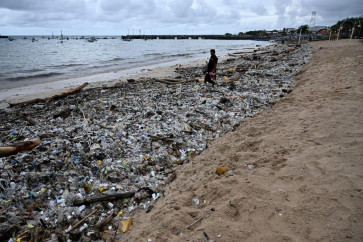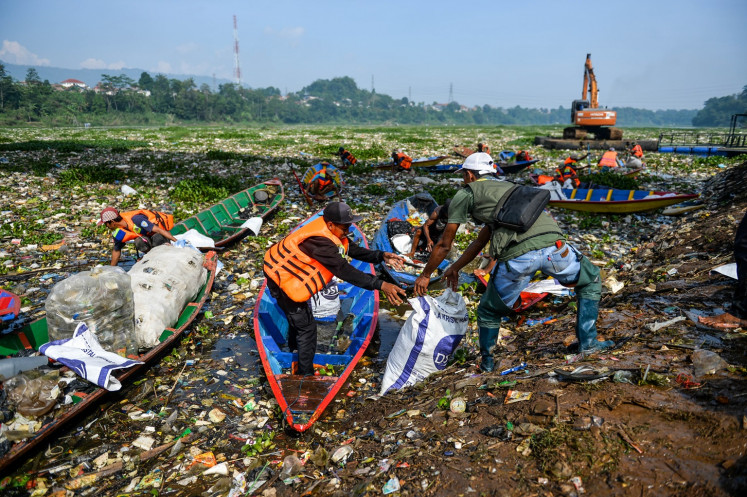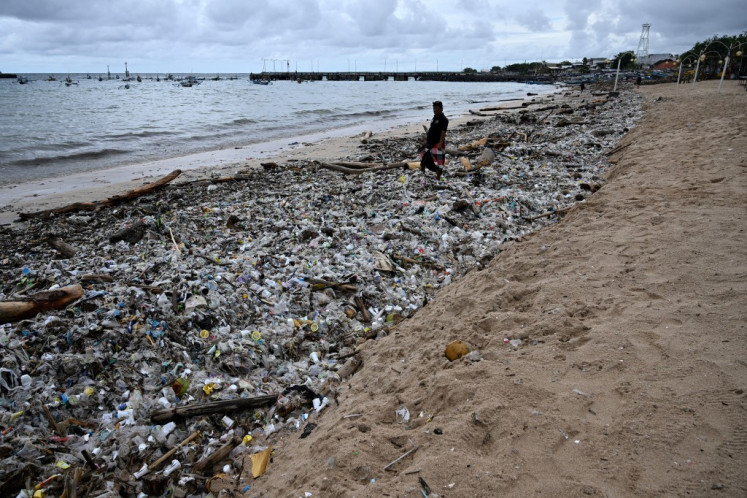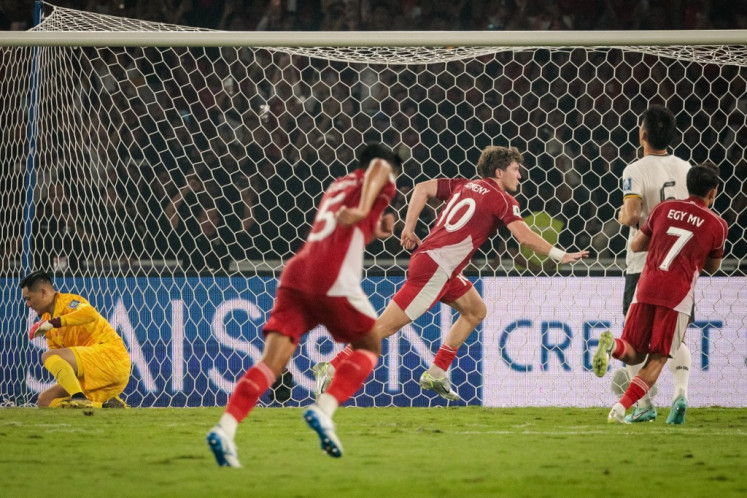On World Environment Day, you can help end plastic pollution
Ending plastic pollution is clearly a human health, planetary health, economic health and business health imperative.
Change text size
Gift Premium Articles
to Anyone
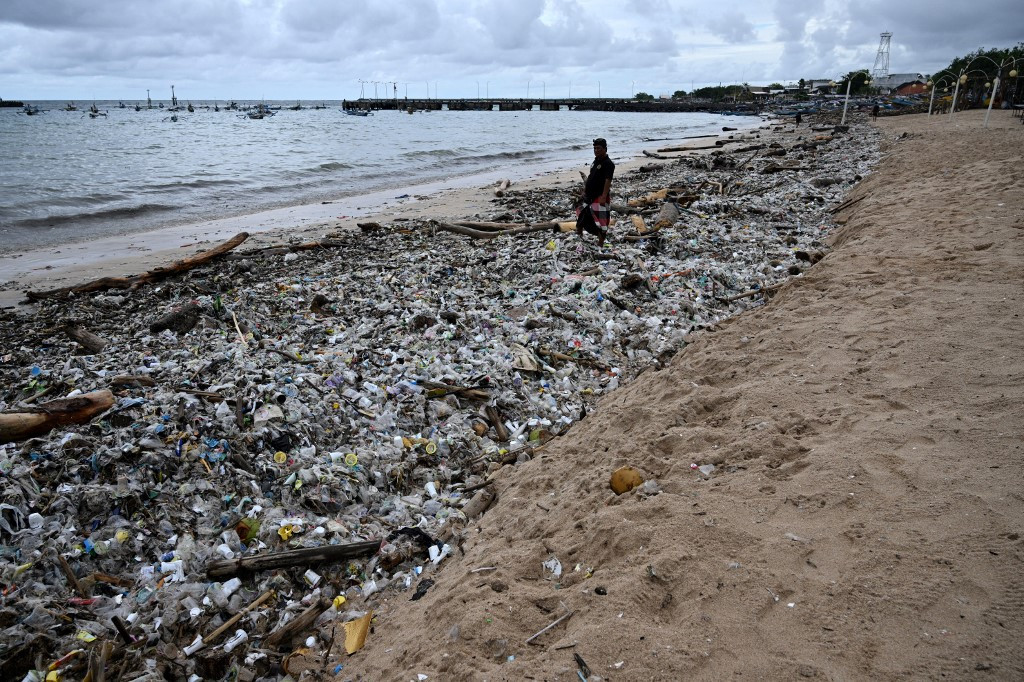 A man stands on plastic waste and other garbage washed ashore that has accumulated thickly on a beach in Kedonganan, Badung regency, Bali, on Jan. 3, 2025. (AFP/Sonny Tumbelaka)
A man stands on plastic waste and other garbage washed ashore that has accumulated thickly on a beach in Kedonganan, Badung regency, Bali, on Jan. 3, 2025. (AFP/Sonny Tumbelaka)
W
hen you woke up this morning, you did not breakfast on a plate of plastics, and rightly so. Your body likely has plastic in it anyway: microplastics, which have been found in the arteries, lungs, brains, placenta and breast milk of people across the world.
We still do not know exactly what these microplastics do to our bodies, although new research is emerging all the time. We do know that we did not choose to ingest them. We do know that they do not belong there. And we do know that only ending plastic pollution will stop such plastics accumulating inside of us.
Plastics bring many benefits for humanity, in health care, in clean energy technology and much more. Plastic is a useful, durable material that has a role to play in societies and economies, including as we transition to a greener, safer world. The problem is that the way we produce, use and discard many plastics, particularly single-use and short-lived products used for convenience, not necessity, has swamped the world in pollution.
An estimated 11 million tonnes of plastics leak into aquatic ecosystems each year, while around 13 million tonnes of plastics accumulate in the soil annually. This pollution gets everywhere, from the Mariana Trench, the deepest ocean point, to Mount Everest, the highest mountain peak, and breaks down into ever smaller particles, which sneak into our bodies through food, water and even air.
The harm caused by plastic pollution on species, ecosystems and economies is well documented. The costs of plastic pollution could rise as high as a cumulative US$281 trillion between 2016 and 2040. We are talking about lost income from tourism, beaches that need to be cleaned up, contaminated rivers, communities flooding as plastic waste clogs drains, fishing communities that are increasingly catching little more than plastic bottles and bags, and more.
Ending plastic pollution is clearly a human health, planetary health, economic health and business health imperative. This is why, on World Environment Day, the United Nations Environment Programme (UNEP) and the host nation, the Republic of Korea, are mobilizing communities across the globe to #BeatPlasticPollution.
Make no mistake: the world is moving to end plastic pollution. Over 90 countries have put in place some form of restriction on single-use plastic bags. An initiative by The Ellen MacArthur Foundation and UNEP has committed over 500 businesses, governments and organizations to creating a circular economy, in which plastics never become pollution. In 2022, at the UN Environment Assembly, the nations of the world kick-started negotiations on an international legally binding instrument on plastic pollution, including in the marine environment. Negotiators are now working hard to deliver a deal at the next round of negotiations in Geneva, Switzerland, this August.
But if we are to turn this global movement into a future free of plastic pollution, we need to apply a circular approach across the full lifecycle of plastics, ensuring that plastic stays in the economy, where it belongs, not in our oceans, our soils or our bodies.
Recycling alone will not be enough. Only 21 percent of plastic today is economically recyclable, defined as when the value of recycled material is high enough to cover the cost of collecting, sorting and processing it. This is part of the reason why only 9 percent of plastics are being recycled.
We need a complete rethink of how we design, make, use and reuse plastics. Products should be designed to be used more than once, and to be recycled at the end of their life. We need to think about shifting to refill systems, and more.
The transition must be just: to protect the livelihoods of waste pickers and impacted communities, and to find affordable alternatives for poor communities living day-to-day, people who can only afford to purchase small quantities of a particular product or rely on clean drinking water available in plastic sachets.
There is work to do, but the rewards of ending plastic pollution will be plentiful: cleaner oceans and lands, healthier people and ecosystems, greater climate resilience, new job opportunities and stronger economies.
Governments and businesses have a key leadership role to play, through investment and innovation in new approaches. But every one of us can make a difference. The choices we make can shape industries, shift markets and redefine our collective future.
On World Environment Day, do whatever you can, wherever you can, to reduce plastic pollution and help carry everyone toward a cleaner, safer and more prosperous world.
---
The writer is executive director of the United Nations Environment Programme.


